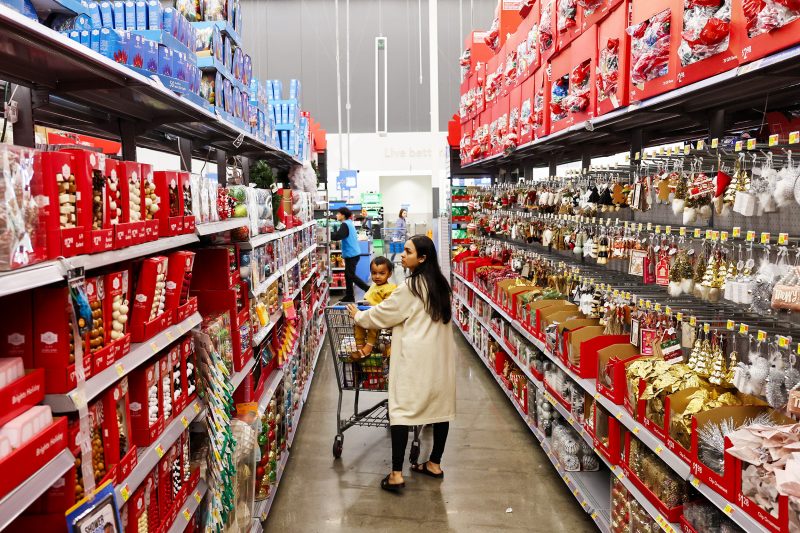With Black Friday only about a week away, there are signs consumers aren’t in a jolly, high-spending mood.
The Commerce Department said Wednesday that sales by U.S. retailers were 0.1% lower in October than in September. The agency said department store sales fell 1% and clothing sales were unchanged from the previous month.
That total excludes sales at gas stations and auto parts retailers.
A survey from the National Retail Federation and CNBC, also released Wednesday, showed similar results, with sales unchanged from September to October.
The lack of improvement might be a sign shoppers are going to pinch their pennies over the holidays this year. Ted Rossman, an analyst who covers topics including personal finance for Bankrate, said the report is an ‘ominous’ sign for November and December.
‘Nonstore retailers, basically a proxy for e-commerce shops, only expanded their sales 0.2% from September to October. That’s surprising given all of the early holiday promotions,’ Rossman wrote, noting that Target, Amazon and Walmart all had major promotions. ‘Consumer sentiment remains depressed and retailers have to be getting nervous about the all-important holiday period.’
Consumers are indeed feeling more pressure lately, and that might leave them reluctant to spend.
Interest rates on credit cards are at longtime highs. People are carrying bigger balances on their cards than they had previously. Student loan payments just resumed after a long pause. And while the pace of inflation has slowed, prices are still notably higher than they were a few years ago.
Meanwhile, the job market isn’t quite as strong as it has been, although unemployment is very low. And more than three years after the last round of pandemic stimulus, people have spent most of what they’d saved up.
All of that is leaving consumers feeling gloomy. The University of Michigan says consumer sentiment has fallen for four months in a row, although it remains better than it was a year ago. The school found that people with lower incomes were most concerned.
The Conference Board’s Consumer Confidence Index shows that almost 70% of respondents expect a recession in the next 12 months.
Not everyone thinks retailers are going to get the equivalent of a lump of coal. Chris Zaccarelli, the chief investment officer for the Independent Advisor Alliance, said Wednesday’s retail sales data was a bit better than Wall Street experts had expected.
‘Given expectations that retail sales would contract month-over-month, instead we saw slight gains in the data. In addition, the prior month’s data was revised higher as well, showing that this month wasn’t a statistical fluke,’ Zaccarelli wrote.
A group of Wells Fargo economists, including senior economist Tim Quinlan, economist Shannon Seery and economic analyst Jeremiah Kohl, wrote in October that sales will grow 5% compared to last year. That sounds pretty good, and is above a longer-term average, but they acknowledged that it might feel a bit sluggish to retailers because growth over the previous couple of years was unusually strong.
‘Purchasing power is fading and competition for consumer wallets is rising. Both of these factors have contributed to lower sales momentum and will likely remain a headwind to overall purchases this holiday season,’ they said.

